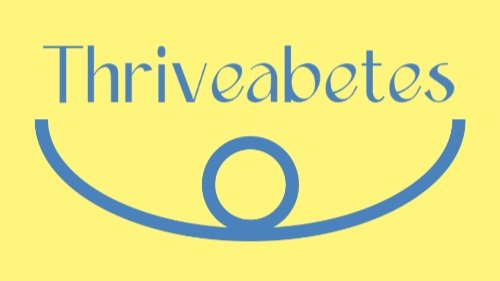Getting an Insulin Pump
* This page was last updated in June 2024.
Most people with diabetes in Ireland get their insulin pump through their diabetes clinic or through attending a private diabetes consultant specialist.
Cost of Insulin Pumps
The health service provides insulin pumps free under the HSE’s Community Funded Schemes, and the consumable products are also free through the Long-Term Illness scheme. The pump training is also provided without any charge in public hospitals. If you attend a diabetes consultant privately, you may have to pay for this training and the consultant’s fees.
There are currently three insulin pumps available through the HSE. All of the choices are tubed pumps. A very small number of people have been able to get insulin pumps that are not included on the HSE’s list, but they do have to pay privately for these pumps and the consumables, and the pump companies require a letter from your consultant stating that they will support you on this pump. Irish Health insurers do not currently cover insulin pumps.
How do I get an Insulin Pump in Ireland?
Once you decide that you want to try an insulin pump, there are a number of steps to figure out in this journey:
Do you qualify for an insulin pump?
Does your clinic or consultant offer insulin pump therapy and
How long is the waiting list for a pump in my clinic, and how understaffed are they?
Do I Qualify for an Insulin Pump?
There are different eligibility criteria for adults and children under 12 years.
For Children aged under 12 years
The clinical guidance for offering insulin pumps to children under 12 years has not been updated since 2012. Figure 1 on page 8 of the HSE Model of Care for the provision of continuous subcutaneous insulin infusion for the treatment of Type 1 Diabetes in the under-five age group (2012) outlines the Pump Pathway for Children under 5 years of age diagnosed with type 1 diabetes. The document goes on to say that assessment for suitability for Insulin Pump therapy is done through the Kaufman Competency Scale (Section 3.6 Selection Criteria for CSII Therapy, Page 10).
However, it is worth noting for parents that the NICE UK Technology appraisal guidance on Insulin Pumps, which was updated in 2022, recommends Insulin Pump Therapy for children younger than 12 years with type 1 diabetes mellitus provided that:
MDI therapy is considered to be impractical or inappropriate,
and children on insulin pumps would be expected to undergo a trial of MDI therapy between the ages of 12 and 18 years.
This process may sound straightforward, but there may be long waiting lists for pump training due to the lack of specialist staff in all the diabetes clinics in Ireland.
For Adults with Type 1 Diabetes
There is no guidance on providing insulin pump therapy for adults with type 1 diabetes in Ireland. The newly updated HSE’s National Clinical Guidelines for Adults with Type 1 Diabetes (2024) states that “it is hoped that this guideline will be developed within the coming years” (see Section 3.7.10 page 24). However, insulin pump therapy is being provided to Adults with type 1 diabetes in Ireland by approximately 12 of the 33 public diabetes clinics. The newly launched Diabetes Technology Network Ireland recommends that teams use the Best Practice Guide for CSII (Insulin Pump) Indications for CSII on page 8, which is based on the same NICE Technology appraisal guidance (2022) as mentioned in the Children’s section above.
The NICE UK 2022 guidelines recommend Insulin Pump Therapy for adults and children 12 years and older with type 1 diabetes provided that:
Attempts to achieve target haemoglobin A1c (HbA1c) levels with multiple daily injections (MDIs) result in the person experiencing disabling hypoglycaemia. For the purpose of this guidance, disabling hypoglycaemia is defined as the repeated and unpredictable occurrence of hypoglycaemia that results in persistent anxiety about recurrence and is associated with a significant adverse effect on quality of life
or HbA1c levels have remained high (that is, at 8.5% [69 mmol/mol] or above) on MDI therapy (including, if appropriate, the use of long-acting insulin analogues) despite a high level of care.
Does your diabetes clinic or private consultant offer insulin pump therapy?
It is important to know that even though some diabetes clinics support pump users, not every diabetes clinic has the specialist staff to initiate insulin pump starts. So, the next step in your pump journey is to find out if your diabetes clinic or consultant offers insulin pump therapy.
If your clinic/consultant does provide pump therapy, your next step is to have a conversation about why you think a pump will benefit you with them.
If your diabetes clinic or private consultant does NOT offer insulin pump therapy, you might be able to transfer your care to a diabetes clinic that does. You can do this by getting a referral from your existing clinic or your GP.
Alternatively, your consultant may recommend a referral to a private hospital for an insulin pump and training, but continue with their service once you are up and running.
How do I find out if my clinic offers Insulin Pumps?
Online support groups are an excellent way to find out what clinics offer insulin pump therapy; you can find one of the many support groups here to connect with people already “pumping” or by using the hashtag #IREDOC on Instagram or Twitter.
What happens next?
If your diabetes team or diabetes consultant thinks that you would benefit from using an insulin pump, they will submit a letter of application for funding to your HSE’s local Healthcare office.
If this application is approved, your team will then order your pump. Once the pump is delivered, you then have to wait for a member of the pump training team to be available to set a time for your pump training.


